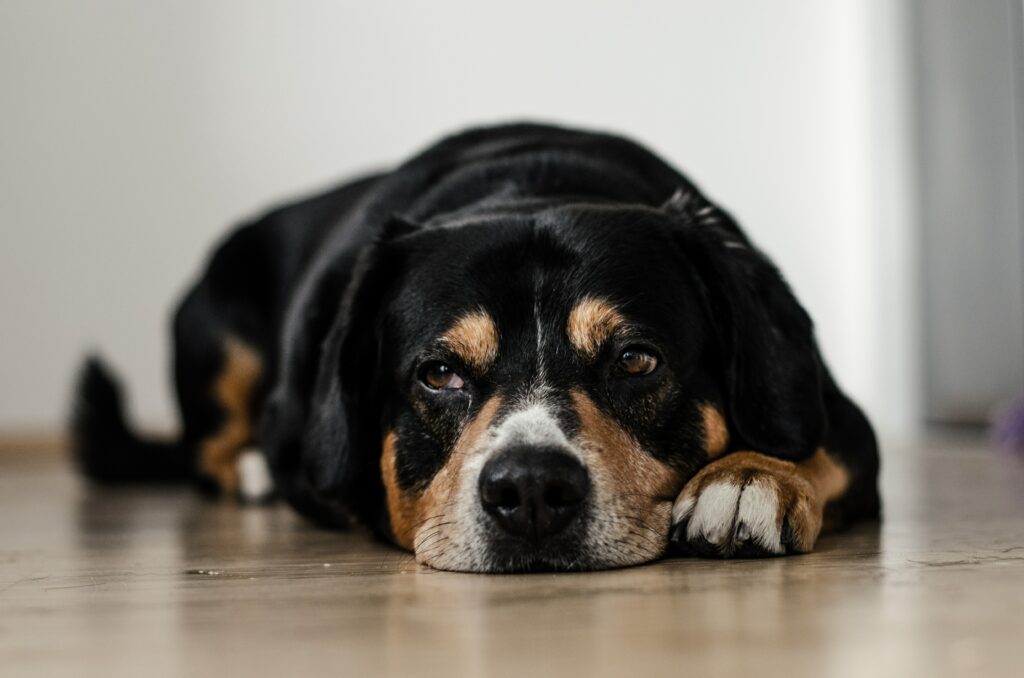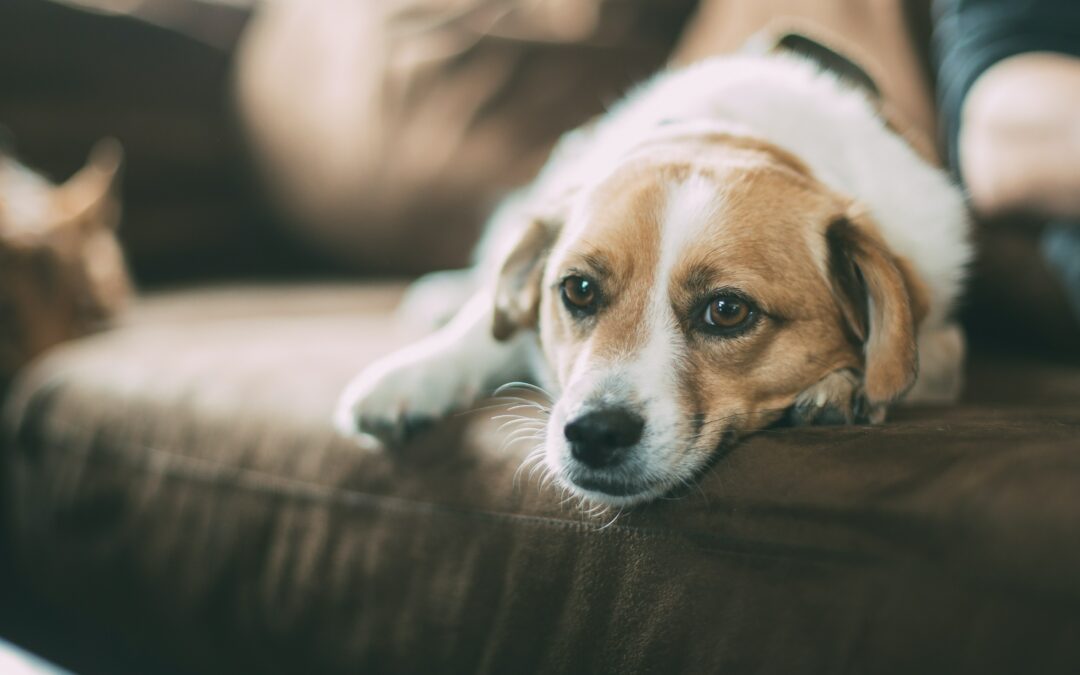Dogs are social creatures and have evolved alongside humans over thousands of years.
So, it’s natural for them to be nervous or anxious when you leave them alone. They feel safe when they are with their people or with other dogs and can become very agitated when you disappear. Separation anxiety could also be triggered by a big life event like a relocation or house move.
Some common signs of separation anxiety are barking, howling, defecating, urinating, destroying things around the house, following their owner around, waiting by the door, loss of appetite, or excessive licking. You may notice some of these behaviours when you’re at home but most of them will occur when you’re not present. It might be useful to set up a camera to monitor your pup’s behaviour when you’re out.
How you can help your dog with separation anxiety
There are some things you can do without too much intervention from professionals. If your dog’s case of separation anxiety is serious or extreme, it could be worth enlisting the vet or a canine behaviourist.
Talk to your vet
The first thing you should do if you notice your pooch displaying unusual behaviours is rule out any medical conditions. Be sure that the urination, defection or loss of appetite are definitely down to separation anxiety. Make a note for the vet of when the behaviours are happening and the frequency. This will help the vet reach a conclusion.
Create a solid routine
Having a routine with your furry friend will make them feel more secure. Dogs generally like to know when they’re eating, walking and when and how long they might be alone for. This is particularly important during and after a house move or big life event when they might be extra anxious.
Leave them alone less
If there’s any option for leaving them alone less, take it. Is your workplace dog friendly or could you negotiate some arrangement with them? Could you ask a friend or family member to keep them company? If neither of these are options, you could find a good dog sitter locally who’d spend some time with your canine companion to quell their separation anxiety.

Photo by Dominik QN on Unsplash
Build up to leaving them for longer periods
If there’s no option but to leave them alone for periods of time, give them some training first. Start by leaving them alone in a room and don’t make a fuss as you depart. Reward them gently for staying calm on your return – don’t greet them excitedly as you want to keep their energy peaceful. Gradually build this up over weeks until you’re able to leave the house. Again, gradually extend the period of time they are alone at home.
Make sure they have enough exercise
Before leaving them alone, make sure they have had adequate exercise and that they’re content and happy. If they’re lacking in exercise and have energy to burn, this will in turn add fuel to the anxiety fire.
Make them more comfortable when they’re alone
Again, before leaving them alone make them really comfortable in their environment and make sure they have distractions and stimulants. Set up a space that’s just theirs with their comfy bed, favourite toys and something with your scent on it. There are great interactive toys on the market, like snuffle mats and puzzles that would give them something to relieve boredom. Finally, it might be helpful to leave the radio on or play some music that you know your dog enjoys, both to soothe them and drown out any alarming noises outside.
Ask a canine behaviourist
If you’re having a really tough time with separation anxiety, do talk to a canine behaviourist. They will help you assess your dog’s behaviour and will offer professional advice to help you overcome and improve the situation. It can be extremely stressful for owners and dogs alike, as both are in distress.
Remember, separation anxiety can be a very natural reaction to being alone for dogs, who are social creatures. They like being in groups so try as much as possible to give them the company they crave. If it isn’t possible, do your very best to relieve them of their worry by creating reassuring and predictable habits around leaving them alone. Pets are part of our family and want to feel loved and provided for at all times.
Learn more about us
Subscribe to the DAR Newsletter below:
About the author


